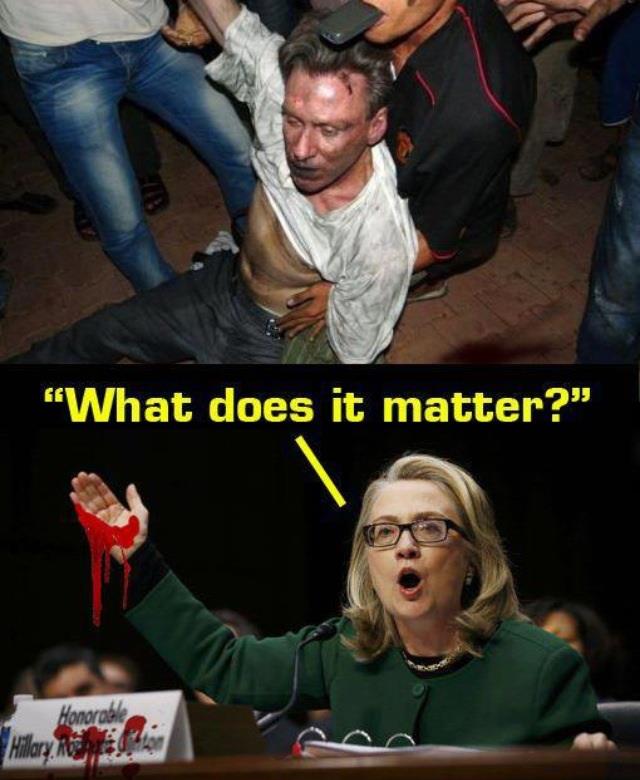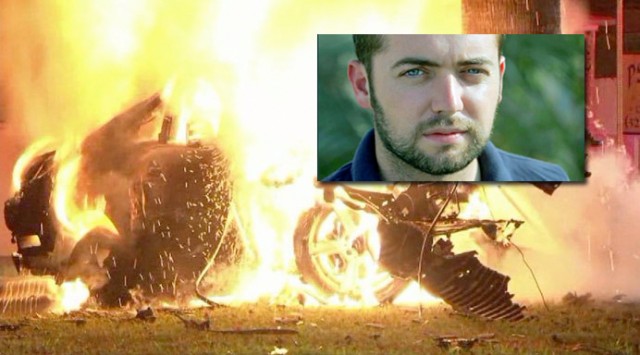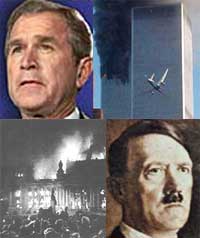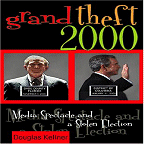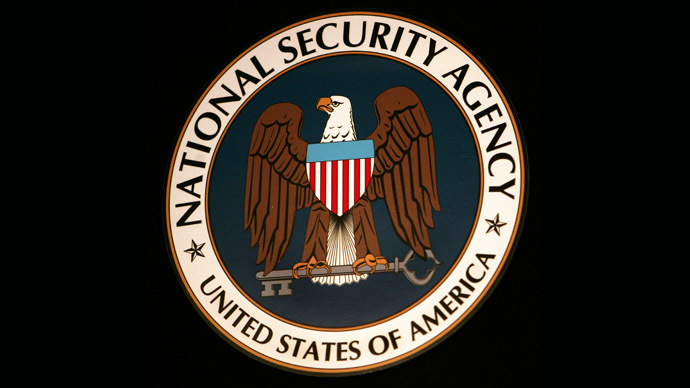Former CIA contractor Edward Snowden has carried out one of the biggest leaks in US history, exposing a top-secret NSA surveillance program to the media. Leading tech companies were revealed to be involved in intelligence gathering through PRISM spy tool.
16:55 GMT: The US says that it is “deeply disappointed” over China’s decision to let Snowden leave Hong Kong for Russia.
“We are deeply disappointed by the decision of the authorities in Hong Kong to permit Snowden to flee despite a legally valid US request to arrest him for purposes of his extradition,” State Department spokesman Patrick Ventrell told reporters, cites Reuters. Such a decision is “detrimental” for US-China and US-Hong-Kong relations, he added.
16:50 GMT: The US is in touch with countries through which NSA leaker Snowden may travel or where he may decide to stay, the White House spokesman said. Senior officials regularly brief president Obama on the matter, Jay Carney added.
Commenting on the countries that Snowden appealed to for help, Carney noted that “If his passion here is for press freedom and freedom of the Internet and the like, he has chosen unlikely protectors.”
. Washington expects Moscow to look at all the options available to them to expel the NSA leaker to the US where he faces charges for revealing secret surveillance programs.
15:14 GMT: Ecuador is going to thoroughly analyze the Snowden’s asylum bid and “absolutely independently” make a decision on the matter, that they believe to be “the most appropriate,” President Rafael Correa wrote on twitter.
15:05 GMT: Assange says Snowden received refugee papers from Ecuador to secure him safe passage as he fled Hong Kong on Sunday.
“In relation to Hong Kong, Snowden was supplied with a refugee document of passage by the Ecuadorean government,” the WikiLeaks founder told reporters. Although these documents would not necessarily guarantee the NSA leaker would be granted asylum in Ecuador.
14:44 GMT: WikiLeaks approached Iceland and other countries with a formal request for asylum for Snowden, says the organization’s spokesperson Kristinn Hrafnsson.
“It is already public that I, as an Icelandic journalist, approached the Icelandic government with a formal request from Mr Snowden for asylum in Iceland. Similar processes were carried out elsewhere,” he told the media.
14:12 GMT: Edward Snowden and Wikileaks' Sarah Harrison who is accompanying him are
Julian Assange said during a conference call broadcast by RT.
“The current status of Mr Snowden and Harrison is that both are healthy and safe and they are in contact with their legal teams,” the WikiLeaks founder said. “I cannot give further information as to their whereabouts,” Assange added.
“Snowden is not a traitor, he is not a spy he is a whistleblower who told the public the important truth,” he pointed out.
en route from Moscow to Cuba. Even if the NSA leaker did get onboard the aircraft, the expert said the US “possibly could instruct it to land somewhere” on American soil though highly unlikely.
“Of course the pilot himself has the possibility to divert so he does not actually need to enter US airspace to fly down to Havana. And that will be another possibility as well,” Yates added.
13:40 GMT: Ecuador has been in contact with the Russian government over Edward Snowden, and says it is considering his asylum appeal, according to the country's Foreign Minister Ricardo Patino speaking during a visit to Vietnam.
Patino stressed the Ecuadorian government puts human rights above any other party’s interests, and
“The word 'treason' is used, but who has betrayed whom? Is it people who've been betrayed, or certain elites?” Patino asked.
Ecuador is also considering a US request related to Snowden, Patino said, adding that the decision would come “in due time.”
10:56 GMT: Flight to Havana Edward Snowden was booked on has departed, but he is not seen either boarding or on plane, according to
Egor Piskunov, who was onboard.
People look the passenger plane, flight SU 150 to Havana, docking to a boarding bridge at the Moscow Sheremetyevo airport on June 24, 2013. (AFP Photo / Kirill Kudryavtsev)
if China or Russia had prior notice of Edward Snowden’s travel plans.
10:10 GMT: A lawyer for Edward Snowden pointed out that the former spy agency contractor had been told to flee Hong Kong by a middleman claiming to represent the China-controlled territory – which evidently could mean the advice was Beijing-backed. Albert Ho, who is also a lawmaker critical of Chinese involvement in Hong Kong’s affairs, stressed that in his opinion the case was clearly monitored and controlled by China.
5:04 GMT: Washington has said it expects Moscow to look at every available option to
4:57 GMT: The Ecuadorian government is
analyzing NSA leaker Snowden’s asylum bid as he attempts to elude extradition to the US, said Foreign Minister Ricardo Patino.
"We are analyzing it with a lot of responsibility," Foreign Minister Ricardo Patino told reporters in Hanoi, Vietnam, where he is currently on an official visit. He added that the decision has to do “with freedom of expression and with the security of citizens around the world."
“We always act in the name of principles not in our own interests. There are governments who make decisions more according to their own interests, we don’t do that. Our main focus is human rights,” said Patino, when asked how granting Snowden asylum could affect Ecuador’s relations with the US.
Monday, June 24
23:02 GMT: Despite America frequently welcoming dissidents from other countries it adopts a harsh stance against those who highlight abuses of power at home, attorney and historian Gerald Horne told RT.
“If you listen to the congress person appearing on Sunday’s chat shows, they are breathing fire threatening measures just short of a nuclear war if Mr Snowden is not speedily dispatched back to New York or Washington,” he said.
“The United States for example routinely accepts on its territory citizens fleeing Cuba without passports. I would also say that the United States routinely receives on its soil those it deems to be political dissidents, who do not have passports. So I do not feel that Moscow’s hands are tied in regard to Mr Snowden not having a passport.”
22:13 GMT: The US is "
disappointed and disagrees with the determination by Hong Kong authorities not to honor the US request for the arrest of the fugitive," a US official told Reuters. Meanwhile, the US State Department has warned countries in the Western Hemisphere to not allow Edward Snowden to“proceed in any further international travel,” according to a written statement cited by Reuters.
18:20 GMT: Edward Snowden’s passport was annulled before he left Hong Kong for Russia, a US official said on condition of anonymity. Although the loss of his passport could complicate Snowden’s travel plans, a country could overlook the withdrawn passport if a senior government or airline official ordered it.
15:42 GMT: Edward Snowden has asked Ecuador for
political asylum, the country’s foreign minister, Ricardo Patino Aroca, wrote on Twitter. Ecuador’s ambassador to Russia, Patricio Chavez, arrived at Sheremetyevo Airport to meet Edward Snowden after his plane touched down in Moscow.
15:30 GMT: The Icelandic government has received no information on whether former CIA officer Edward Snowden intends to fly to the country’s capital Reykjavik via Moscow, Russia’s ITAR-TASS news agency reports.
The arrival of Snowden in Iceland is “highly unlikely”, the head of the Icelandic prime minister’s press-service, Johannes Skulason, told Interfax news agency, adding that the country’s government has no information on the whistleblowers whereabouts.
In accordance with Icelandic law, an individual has to be on the country’s territory in order to apply for political asylum, and such applications cannot be processed from even from the premises of Iceland’s diplomatic missions.
15:10 GMT:
15:00 GMT: Edward Snowden is in a terminal at Moscow’s Sheremetyevo Airport and is waiting for a transfer flight to Cuba, a source at the airport told Interfax News Agency.
A source from the airline Aeroflot said Snowden, who is accompanied by WikiLeaks representative, Sarah Harrison, has rented a suit at the airport’s «V-Express» Capsule Hotel.
Two cars with diplomatic license plates from Ecuador were also spotted at the airport. A source told RT that a doctor from the Ecuadorian embassy in Moscow has examined Snowden on his arrival in the Russian capital.
11:50 GMT: Diplomats and legal advisors from WikiLeaks are escorting Edward Snowden from Hong Kong to an unnamed “democratic Nation” via Moscow, the group said in a statement.
The group said Snowden had asked for its "legal expertise and experience to secure his safety” and had chosen a safe route for the whistleblower "for the purposes of asylum".
"The WikiLeaks legal team and I are interested in preserving Mr Snowden's rights and protecting him as a person," Reuters cites former Spanish judge Baltasar Garzon, legal director of WikiLeaks and lawyer for the group's founder Julian Assange, as saying.
"What is being done to Mr Snowden and to Mr Julian Assange - for making or facilitating disclosures in the public interest - is an assault against the people."
8:45 GMT:
7:47 GMT: Edward Snowden has left Hong Kong of his own volition for a “third country”, authorities from the city state said.
The whistleblower’s decision to leave the country comes one day after a senior US official told the Washington Post: "If Hong Kong doesn't act soon, it will complicate our bilateral relations and raise questions about Hong Kong's commitment to the rule of law."
Authorities from the Hong Kong special administrative region [HKSAR] issued a statement saying Snowden had been allowed to leave the country as they had yet to receive sufficient information necessary to process a provisional warrant or arrest and thus had no legal basis to keep him from leaving the country.
"The HKSAR government has already informed the US government of Mr Snowden's departure,” the statement continued.
Sunday, June 23
20:23 GMT: The US says
bilateral relations will suffer if Hong Kong won’t act soon on its request to extradite NSA whistleblower, Edward Snowden, Reuters reports quoting anonymous officials.
18:14 GMT: The South China Morning Post said whistleblower Edward Snowden, who has been charged with espionage by the US, was not in police custody in Hong Kong, as had been reported elsewhere.
"Contrary to some reports, the former CIA analyst has not been detained, is not under police protection, but is in a 'safe place' in Hong Kong," the paper said.
16:30 GMT: A
White House petition demanding that Snowden be issued a full pardon has reached over 100,000 signatures in less than two weeks, meaning the US government is obliged to review and respond to its requests.
16:27 GMT: Wikileaks founder Julian Assange has said that the Obama administration charging NSA leaker Edward Snowden and requesting his arrest is a move to “intimidate any country” that may wish to protect the whistleblower.
“The charging of Edward Snowden is intended to intimidate any country that might be considering standing up for his rights,” reads a post on Wikileaks webpage on behalf of Assange after his
addressfrom the Ecuadorian embassy in London was canceled due to security concerns.
Commenting on Assange’s speech, geopolitical analyst and founder of stopimperialism.com Eric Draitser has told RT that neither the US nor the UK will “change their policies” and “stop spying on the world”.
“As we know the United States, the UK and the other powers in the West have “spent billions of dollars creating the infrastructure of surveillance states,” he said.
13:07 GMT: Hong Kong Police Commissioner Andy Tsang has said that the normal legal process will be observed following the US filing criminal charges and requesting the arrest of Snowden.
“All foreign citizens must comply with Hong Kong law,” he said, adding that the police would act on the request once it is received.
He declined to comment on whether Snowden was in a police safe house, a rumor mentioned by one Hong Kong newspaper
Saturday, June 22
23:50 GMT: The United States government has released the indictment of Edward Snowden, charging him with espionage, among other crimes. Read RT's full coverage
here.
Nick Pickles of the UK's Big Brother Watch has released a statement condemning GCHQ's collection of information. "We need a wholesale review of surveillance law, including the fact that there is absolutely no judicial process within the current system and the people making these decisions are able to hide in the shadows rather than face public scrutiny," he said.
16:40 GMT: The British spy agency GCHQ has access to the global network of communications, storing calls, Facebook posts and internet histories – and shares this data with the NSA,
Edward Snowden has revealed to the Guardian in a new leak.
Friday, June 21
19:50 GMT: USIS, the company that conducted the background check on Snowden in 2011 is now under investigation for "systematically" failing to do its job, Senator Claire McCaskill has said.
19:45 GMT: Documents handed to the Guardian newspaper show that NSA was allowed to use informational "inadvertently" collected from US citizens
to be scrutinized without a specific court warrant.
Thursday, June 20
11:33 GMT: President Obama has said that surveillance of phone records and Internet activity helped avert at least 50 terror attacks, and was justified because "Lives have been saved." He added that those threats did not just target the US, but also other countries, including Germany. Obama’s statement was in response to German Chancellor Angela Merkel’s argument that government monitoring of Internet communications needed to remain within proper limits.

U.S. President Barack Obama and German Chancellor Angela Merkel hold a joint news conference at the Chancellery in Berlin June 19, 2013 (Reuters / Kevin Lamarque)
"I made clear that although we do see the need for gathering information, the topic of proportionality is always an important one and the free democratic order is based on people feeling safe," Merkel said.
Speaking at a joint press conference with German Chancellor Angela Merkel, Obama maintained that he was confident the US has struck an appropriate balance between intelligence-gathering and civil liberties. Earlier the head of the
National Security Agency also said that more than 50 potential terrorist plots across the globe were thwarted thanks to the controversial surveillance programs.
Wednesday, June 19
15:30 GMT: Alexander was asked to weigh in on Edward Snowden’s remark from earlier this week in which he said the NSA provides Congress with special immunity in regards to the surveillance programs. Alexander responded that he has “no idea” of what the leaker was referring to.
“I’m not sure I understand the context of the special immunity. We treat you with special respect,” said Alexander.
15:10 GMT: Gen. Alexander says the NSA does not have the authority nor the technology to eavesdrop on the emails and phone calls of Americans under the Section 512 and Section 702 programs.
15:07 GMT: Bob Litt, a general counsel for the Director of National Intelligence, testified that "The leaks from this investigation are not damaging" and suggested it could be months before the US finds out if the documents released by Edward Snowden will have a detrimental effect on the country.

General Keith Alexander (Reuters / Jonathan Ernst)
15:00 GMT: Gen. Alexander dismisses allegations that the NSA has unfettered access to all communications and said, "US companies are compelled to provide these records by US law using methods that are in strict compliance with that law."
14:54 GMT: Of the more than 50 potential terrorist attacks thwarted by the NSA, over 50 involved overseas targets. Only 10 were plotted to occur within the US, and one involved a plan to bomb the New York Stock Exchange.
14:43 GMT: Gen. Keith Alexander, the head of the NSA, is testifying on Capitol Hill this morning. He said that his agency will soon shed more light on the terrorist attacks it thwarted using the controversial surveillance programs, and that the number of events exceeds 50. Mirroring what FBI Director Robert Mueller said days earlier, Alexander suggested that the terrorist attacks of September 11, 2001 could have likely been prevented if these systems were in place.
Tuesday, June 18
17:15 GMT: Answering the question about previous whistleblowers and whether their choices influenced Snowden, he replied that “Binney, Drake, Kiriakou, and Manning are all examples of how overly-harsh responses to public-interest whistle-blowing only escalate the scale, scope, and skill involved in future disclosures."
He notes that the “draconian responses” instead help to “build better whistleblowers.”
“If the Obama administration responds with an even harsher hand against me, they can be assured that they'll soon find themselves facing an equally harsh public response.”
16:55 GMT: “I'm being called a traitor by men like former Vice President Dick Cheney. This is a man who gave us the warrantless wiretapping scheme as a kind of atrocity warm-up on the way to deceitfully engineering a conflict that has killed over 4,400 and maimed nearly 32,000 Americans, as well as leaving over 100,000 Iraqis dead. Being called a traitor by Dick Cheney is the highest honor you can give an American, and the more panicked talk we hear from people like him, Feinstein, and King, the better off we all are. If they had taught a class on how to be the kind of citizen Dick Cheney worries about, I would have finished high school,” said the whistleblower to the Guardian newspaper.

A woman walks past a banner displayed in support of former US spy Edward Snowden in Hong Kong on June 18, 2013 (AFP Photo / Philippe Lopez)
16:41 GMT: An Associated Press journalist reminded in her question that US officials claim terrorists are already altering TTPs because of Snowden’s leaks, calling him a traitor.
Snowden answers that journalists should ask themselves certain questions like “since these programs began operation shortly after September 11th, how many terrorist attacks were prevented SOLELY by information derived from this suspicion less surveillance that could not be gained via any other source? Then ask how many individual communications were ingested to achieve that, and ask yourself if it was worth it. Bathtub falls and police officers kill more Americans than terrorism, yet we've been asked to sacrifice our most sacred rights for fear of falling victim to it.”
16:25 GMT: When the whistleblower was asked about providing classified US information to the Chinese or other governments in exchange for asylum, Snowden answered that this allegation was just a ‘predictable’ reaction of the US media.
“This is a predictable smear that I anticipated before going public, as the US media has a knee-jerk "RED CHINA!" reaction to anything involving HK or the PRC, and is intended to distract from the issue of US government misconduct. Ask yourself: if I were a Chinese spy, why wouldn't I have flown directly into Beijing? I could be living in a palace petting a phoenix by now”.
16:15 GMT: Snowden was asked to express his opinion on the conduct of companies like Google and Facebook, that provided information which the NSA used in its surveillance program. He answered that he thought that the companies are “legally compelled to comply and maintain their silence in regard to specifics of the program, but that does not comply them from ethical obligation. If for example Facebook, Google, Microsoft, and Apple refused to provide this cooperation with the Intelligence Community, what do you think the government would do? Shut them down?”
15:50 GMT: The whistleblower answers a question as to how in general direct NSA's access works and promises to give more details later on.
“...if an NSA, FBI, CIA, DIA, etc analyst has access to query raw SIGINT databases, they can enter and get results for anything they want. Phone number, email, user ID, cell phone handset ID (IMEI), and so on - it's all the same. The restrictions against this are policy based, not technically based, and can change at any time."
He adds that “audits are cursory, incomplete, and easily fooled by fake justifications. For at least GCHQ, the number of audited queries is only 5 percent of those performed.”
15:25 GMT: Concerning the question why Snowden waited to release the documents as he wanted to tell the world about the NSA programs since before Obama became president, he answered that Obama gave him hope for change.
“Unfortunately, shortly after assuming power, he closed the door on investigating systemic violations of law, deepened and expanded several abusive programs, and refused to spend the political capital to end the kind of human rights violations like we see in Guantanamo, where men still sit without charge.”
15:05 GMT: The first two questions in the live Q&A with Snowden were asked by the Guardian journalist Glenn Greenwald about Snowden’s asylum choice and his NSA leaks.
Snowden answered that he chose to leave the US as the government “immediately and predictably destroyed any possibility of a fair trial at home, openly declaring me guilty of treason and that the disclosure of secret, criminal, and even unconstitutional acts is an unforgivable crime.”
He added that it cannot be called ‘justice’ as he “did not reveal any US operations against legitimate military targets. I pointed out where the NSA has hacked civilian infrastructure such as universities, hospitals, and private businesses because it is dangerous.”
14:00 GMT:
13:00 GMT: Starting from 15:00 GMT Snowden will be answering internet users’ questions at The Guardian website. The live chat is subject to his security concerns, as well as his access to a secure web connection, the paper notes. It also asked users to be patient waiting for Snowden to answer their questions. The full transcript of the Q&A will be later published on The Guardian’s site.
00:00 GMT: The documents uncovered by NSA whistleblower Edward Snowden have revealed that back in 2009
US spies intercepted top-secret communications of then Russian president, Dmitry Medvedev, when he attended the G20 summit in London, The Guardian reports.
The paper has also revealed that a UK intelligence agency, GCHQ, monitored foreign politicians and intercepted their emails during the London summit. Some delegates were tricked into using internet cafes which had been set up by UK intelligence agencies to read their email traffic.
Sunday, June 16
13:04 GMT: Swiss President Ueli Maurer said on Sunday that he doubted Snowden’s claims about his activities in Geneva, when he worked there as a CIA employee in 2007-2009. The NSA leaker told the Guardian newspaper that CIA agents intentionally got a Swiss banker drunk and then encouraged him to drive so he could intervene when he was arrested. Later, they recruited the banker, Snowden stated.
“It does not seem to me that it is likely that this incident played out as it has been described by Snowden and by the media,” Maurer said, reports Reuters, citing a local newspaper. “This would mean that the CIA successfully bribed the Geneva police and judiciary. With all due respect, I just can't imagine it.” SonntagsBlick quoted him as saying.
Maurer added that he would back a criminal probe against Snowden, if prosecutors called for it.
06:38 GMT: An unclassified government document obtained by Reuters claims that only a small proportion of the troves of data collated by the NSA monitoring program used specific phone numbers. The report says the “metadata” does not identify telephone subscribers or email accounts and as such seeks to argue that the practice is legal. Moreover, it stipulates that the information is subject to strict guidelines that ensure personal privacy is not violated.
The paper appears to echo President Barack Obama’s argument that such practices are necessary and justified to conserve the safety of the American people, arguing "dozens of potential terrorist plots [exist] here in the homeland and in more than 20 countries around the world."
Saturday, June 15
02:25 GMT: Facebook announced Friday that “only a tiny fraction of one per cent” of the company’s users were subjected to requests by the National Security Agency. Citing inaccurate reporting and unnecessary levels of government secrecy as his reason to disclose the true number, Ted Ullyot, Facebook’s general Counsel, wrote online that the social networking giant “frequently rejects such requests outright.”
“Since this story was first reported, we’ve been in discussions with US national security authorities urging them to allow more transparency and flexibility around national security-related orders we are required to comply with,” Ullyot wrote. "We’re please that as a result of our discussions, we can now include in a transparency report all US national security-related requests (including FISA as well as National Security Letters) – which until now no company has been permitted to do.”
He wrote that government data requests, which in the six months ending on December 31, 2012, totaled between 9,000 and 10,000, while being careful to note that many inquiries come from local police agencies investigating runaways, assault, and other low-level crimes.
“With more than 1.1 billion monthly active users worldwide, this means that a tiny fraction of one percent of our user accounts were the subject of any kind of U.S. state, local, or federal U.S. government request (including criminal and national security-related requests) in the past six months. We hope this helps put into perspective the numbers involved, and lays to rest some of the hyperbolic and false assertions in some recent press accounts about the frequency and scope of the data requests that we receive.”
19:52 GMT: The 'Stand with Edward Snowden' petition has collected 847,222 digital signatures. The aim is to collect 1 million voices, within 48hrs, calling on Obama to “crack down on PRISM, not Snowden”. “It will send a powerful statement that he should be treated like the brave whistleblower that he is,” reads the petition.
09:21 GMT: The UK has released an alert to all airlines around the world, asking them not to board ex-CIA staffer whistleblower Edward Snowden on UK flights, AP reported. The alert was issued on Home Office letterhead, which specified that "the individual is highly likely to be refused entry to the UK."

Protesters shout slogans as they hold up a picture of former US spy Edward Snowden in front of the US consulate in Hong Kong on June 13, 2013. (AFP Photo / Philippe Lopez)
Friday, June 14
23:00 GMT: Intelligence officials hot on the trail of Edward Snowden are handling the case as a potential foreign espionage matter, apparently rattled after the leaker’s comments to Hong Kong’s South China Morning Post regarding US hacking of computers in China.
According to ABC News, asked whether Snowden was considered at risk of defecting to China a senior official familiar with the ongoing case responded "I think there is a real concern about that."
Intelligence officials evidently considered Snowden’s allegations of spying on China as much of a betrayal as his alleged leaking of highly classified files on the NSA's vast surveillance program.
Jeremy Bash, former CIA and Pentagon Chief of Staff, told ABC News defection or cooperation with a foreign nation such as China is now a top concern.
"He could do tremendous damage. I think if a foreign government learned everything that was in Edward Snowden's brain, they would have a good window into the way we collect signals intelligence… He had access to highly classified information," said Bash.
20:24 GMT: Reuters is reporting that NSA Director Keith Alexander will release on Monday the list of attacks that the US has thwarted through the use of surveillance.

General Keith Alexander, director of the National Security Agency, during a hearing on Capitol Hill in Washington, DC, June 12, 2013. (AFP Photo / Saul Loeb)
17:46 GMT: According to the Los Angeles Times, Edward Snowden smuggled highly classified documents out of a NSA facility in Hawaii using a portable thumb drive.
Investigators “know how many documents he downloaded and what server he took them from,” an official told the Times on condition of anonymity.
Thumb drives and similar portable storage devices have been banned by the Department of Defense and NSA since 2008.
15:56 GMT: Mueller continues to field questions from Congress, defending the NSA surveillance programs and dismissing allegations of illegality. “These programs have been conducted in accordance with the Constitution and the laws of the United States,” Mueller said.
14:37 GMT: Robert Mueller, the director of the Federal Bureau of Investigation, is testifying this morning on Capitol Hill. In regards to the NSA leaks, Mueller said, “These disclosures have caused significant harm to our nation and to our safety,” and that the FBI and Department of Justice are taking “all necessary steps to hold the person responsible.”

Federal Bureau of Investigation Director Robert Mueller testifies during a hearing before the House Judiciary Committee June 13, 2013 on Capitol Hill in Washington, DC. (AFP Photo / Alex Wong)
02:32 GMT: A series of posts to online forums under the name 'TheTrueHOOHA' have been attributed to Snowden. The forum posts, which were retrieved from the technology and news website ArsTechnica, span a period of ten years, and provide some clues into the NSA leaker’s mindset.
Though many of the comments are on casual subjects, such as a leaked beta for a game or advice on work-related programming tasks, they also point to a preoccupation with covering his own online tracks. In 2003, for example, Snowden asked the forum for advice on fairly sophisticated strengthening of his online anonymity, and in 2009 he sought help in creating a virtual, secure machine using a single CD.
In all, the posts seem to illustrate fairly typical interests for an IT employee and an online gamer, though there are some indications of skepticism of state surveillance.
“It really concerns me how little this sort of corporate behavior bothers those outside of technology circles. Society really seems to have developed an unquestioning obedience towards spooky types,” writes Snowden in one post.
Thursday, June 13
23:30 GMT: About one in three Americans believe that Snowden is a “patriot” and should not be prosecuted, according to results compiled by a Reuters/Ipsos poll on Wednesday.
Twenty three per cent of poll respondents believe the former NSA contractor is a traitor to the US, while 31 per cent think that his leaking classified information makes him a patriot. The remaining 46 per cent of those surveyed were undecided. Meanwhile, 25 per cent of respondents thought that Snowden should be prosecuted to the fullest extent of the law.
19:37 GMT: Alexander was asked if NSA leaker Edward Snowden’s claims that he could hack into any phone call within the US, to which he responded, “False. I know of no way to do that.”
18:53 GMT: Gen. Alexander
defended the NSA’s surveillance programs by saying there are “dozens of terrorist events” on US soil and abroad that have been prevented by his agency’s tactics. He also said the NSA will release more solid figures to the public likely within a week.
18:23 GMT: Gen. Keith Alexander, the head of the NSA and the US Cyber Command, testified before the Senate Appropriations defense subcommittee but declined to discuss the surveillance scandal during his opening remarks. Instead, Alexander concentrated on the United States’ cyber capabilities and said the emerging threats of espionage and hacking continue to pose problems to America’s computer infrastructure. “We have to create a defensible architecture,” Alexander said, adding that while he could not be more proud of his departments’ work, current shortcoming prevent the US from being fully prepared to fight off cyberattacks. “We need to be able to see what’s going on in cyberspace so that we can work with the industry and amongst ourselves,” said Alexander, “because getting information after an attack only allows us to police it up. We have to have some way of stopping it before it goes on, so we need to be able to see it.”
Wednesday, June 12
22:50 GMT: The FBI’s use of a secret and controversial part of the Patriot Act has increased by more than 1,000 per cent under since President Obama assumed office from his predecessor, George W. Bush. NBC News learned that in 2012 alone the bureau filed 212 requests under Section 215 of the Patriot Act, which allows the federal government to obtain nearly all domestic communication records from a business and log them for future analysis. The blockbuster revelation that the National Security Agency requested millions of records from Verizon Wireless reflects just a single Section 215 request.

AFP Photo / Getty Images / Spencer Platt
18:43 GMT: Google has asked the Department of Justice for permission to go public with the total number of national security information requests it has received from the federal government.
“Assertions in the press that our compliance with these requests gives the US government unfettered access to our users’ data are simply untrue,” Google’s chief legal officer wrote in a letter to Attorney General Eric Holder and FBI Director Robert Mueller published Tuesday. “However, government nondisclosure obligations regarding the number of FISA national security requests that Google receives, as well as the number of accounts covered by those requests, fuel that speculation.”
Earlier this year, Google noted in a transparency report that the government filed between 0 and 999 requests for user data annually since 2009 by using so-called National Security Letters, but declined to publish solid numbers. Under the Electronic Communications Privacy Act, the Federal Bureau of Information can seek “the name, address, length of service and local and long distance toll billing records” of a subscriber to an Internet or phone company, such as Google.
17:40 GMT: 86 civil liberties organizations and Internet companies – including the Electronic Frontier Foundation, Reddit, Mozilla, FreedomWorks, and the American Civil Liberties Union demanded from Congress to stop unchecked domestic surveillance. In an open letter to lawmakers, the groups call for a congressional investigatory committee, legal reforms and demand holding accountable public officials responsible for the illegal surveillance.
16:00 GMT: Putin
commented on the the NSA surveillance program during a visit to the RT studios.“Such methods are in demand. But you can’t just listen to the phone call in Russia; you need a special order from court. This is how this should be done in civilized society while tackling terrorism with the use of any technical means. If it is in the framework of the law, then it’s okay. If not it is unacceptable,”he said.

Russian President Vladimir Putin, center, during his talk with Russia Today television channel's journalists and correspondents, June 11, 2013. (RT photo / Semyon Khorunzhy)
14:36 GMT: The defense contractor Booz Allen Hamilton has confirmed in a statement that Edward Snowden was an employee in their Hawaii team. Snowden worked in the firm “for less than three months,” and was “terminated June 10, 2013 for violations of the firm’s code of ethics and firm policy,” the statement added.
Booz Allen has not confirmed or denied if Snowden was behind the leak of the classified information, saying an investigation is now in progress.
The contractor described the new on the leak as “shocking,” and said that, if true, it is “a grave violation of the code of conduct and core values” of the firm.
07:49 GMT: Watch Julian Assange LIVE on RT at 15:00 GMT, as the founder of WikiLeaks
discusses one of history’s biggest whistleblowers Edward Snowden, who has revealed the US NSA’s PRISM program.

Julian Assange (AFP Photo / Geoff Caddick)
06:38 GMT: US President Barack Obama is facing a backlash against US surveillance operations. On Monday Congress was divided, with some members calling for the immediate extradition of Edward Snowden from Hong Kong, while others questioned if US tactics have gone too far.
06:13 GMT: There will be more ‘significant information’
exposed in the near future, AP cites The Guardian’s journalist Glenn Greenwald, who revealed classified US surveillance programs leaked by an American defense contractor.
05:57 GMT: Whistleblower Edward Snowden was last seen getting checking out of his hotel in Hong Kong on Monday around noon, Reuters cites witnesses as saying. His current whereabouts remain unknown.
05:20 GMT: A majority of Americans support the US government’s programs that keep track of telephone records to fight terrorism, according to a Washington Post-Pew Research Center poll. A total of 56 per cent of Americans said it was "acceptable" for the National Security Agency to access the telephone records of millions of Americans through secret court orders, while 41 per cent said it was not.
04:57 GMT: Sales of George Orwell’s ’1984′ novel are up by 177 per cent on Amazon, according to the website. The book celebrated its 60th anniversary on June 6 in the midst of real-world NSA leak and government surveillance stories.

Supporters gather at a small rally in support of National Security Administration (NSA) whistleblower Edward Snowden in Manhattan's Union Square on June 10, 2013 in New York City (Mario Tama / Getty Images / AFP)
03:50 GMT US officials maintain that the surveillance program details leaked by Snowden all fall within the legal framework of the Patriot Act and counterterrorism activities. Michael Ratner, a lawyer representing Wikileaks and Julian Assange in the US, disagree.
“The legal part is no point at all, the legal part has to do with laws passed in the US after 9/11, in particular courts that are essentially hand-picked, and a president who is apparently willing to approve this massive surveillance scheme. You can have unjust laws, that’s what we have under surveillance,” Ratner tells RT.
"On the broader issue, does it really prevent anything? Well, I think they’re going to use that as an excuse. In fact terrorism is not the biggest problem in the United States. The uncontrolled use of guns in the United States, many more people -- ten times, a hundred times the number of people are killed by that. I think that terrorism is used as an excuse to be able to surveil and keep tabs on every single American to prevent … progressive government. This is not about our safety, not at all,” he adds.
03:20 GMT: Denver Nicks, an investigative journalist, admitted during an interview with RT that it is a small wonder, considering the number of people granted access to the documents Snowden leaked, that similar disclosures have never been published before. The importance of his leak could potentially influence other NSA employees to publish equally damning documents.
“One wonders if more leaks are coming amid this tremendous crackdown on leaks, where the Obama administration is prosecuting more people for leaking state secrets than all of the previous administrations combined,” he said.
The leak also coincides with the Bradley Manning court-martial, a timing not lost on Nicks or other journalists hoping for increased transparency from the US government.
“I haven’t spoken to Glenn Greenwald or Laura Poitras about this but I would suspect they worked it out to break this story in The Guardian concurrent with Bradley Manning’s court-martial, because it certainly makes a powerful statement,” Nicks said. “I wonder if, in the court of public opinion, people will start to see past this curtain of secrecy and wonder just how much more there is they don’t know.”
01:12 GMT: Russian authorities have promised to join the ranks of those willing to consider giving Snowden political asylum, if he files a formal request – according to the Russian business paper ‘Kommersant’ citing a Kremlin spokesman on Tuesday. “If we receive such a request, we will consider it,”Dmitry Peskov was quoted.

Dmitry Peskov (RIA Novosti / Ilya Pitalev)
00:15 GMT: 68 per cent of respondents to a poll by American firm Rasmussen Reports this week said they believed the government is currently eavesdropping on their communications. The poll, conducted on the heels of President Obama’s claims that PRISM does not target ordinary Americans, shows that a majority think they are in fact being spied on.
“If people can’t trust not only the executive branch but also don’t trust Congress and don’t trust federal judges to make sure that we’re abiding by the Constitution with due process and rule of law, then we’re going to have some problems here,” said Obama.
Meanwhile, a separate poll conducted by Pew indicates that a slight majority of the American public believes that the NSA’s telephone surveillance is an “acceptable way for the government to investigate terrorism.” A large plurality disagreed.
Of 1,004 adults polled between June 6 and 9, 56 per cent stated that government monitoring of telephone records is acceptable, while 41 per cent believe it is not. Interestingly, approval of government monitoring of email and online activities is lower, with 45 per cent approving and 52 per cent finding it unacceptable.
More


